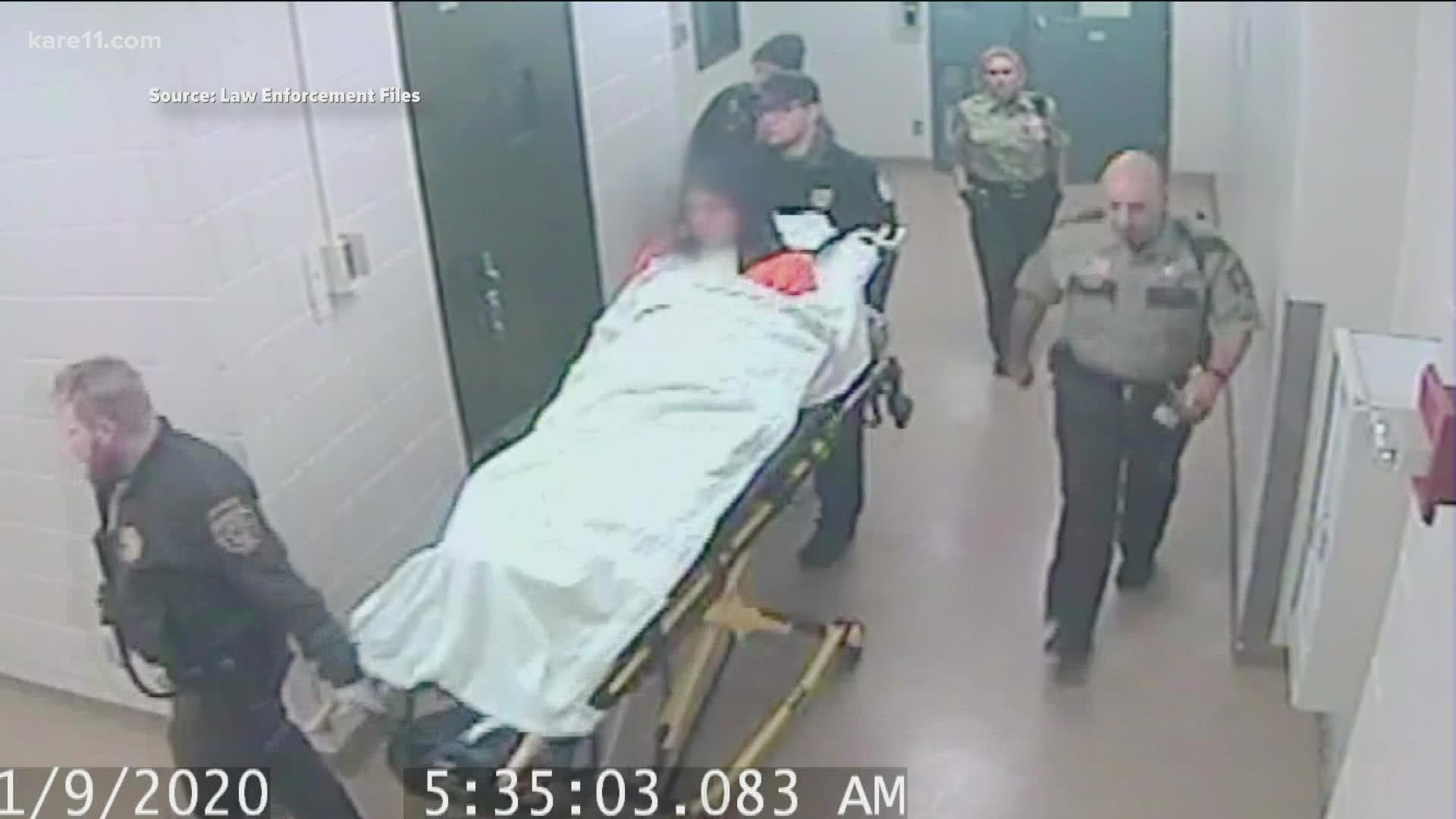KARE 11 Investigates: Jailed, innocent, in labor – and shackled
Police raided a pregnant woman’s home wrongly suspecting her husband stole a snowblower; she ended up in jail, in labor, and experts say, illegally in shackles.
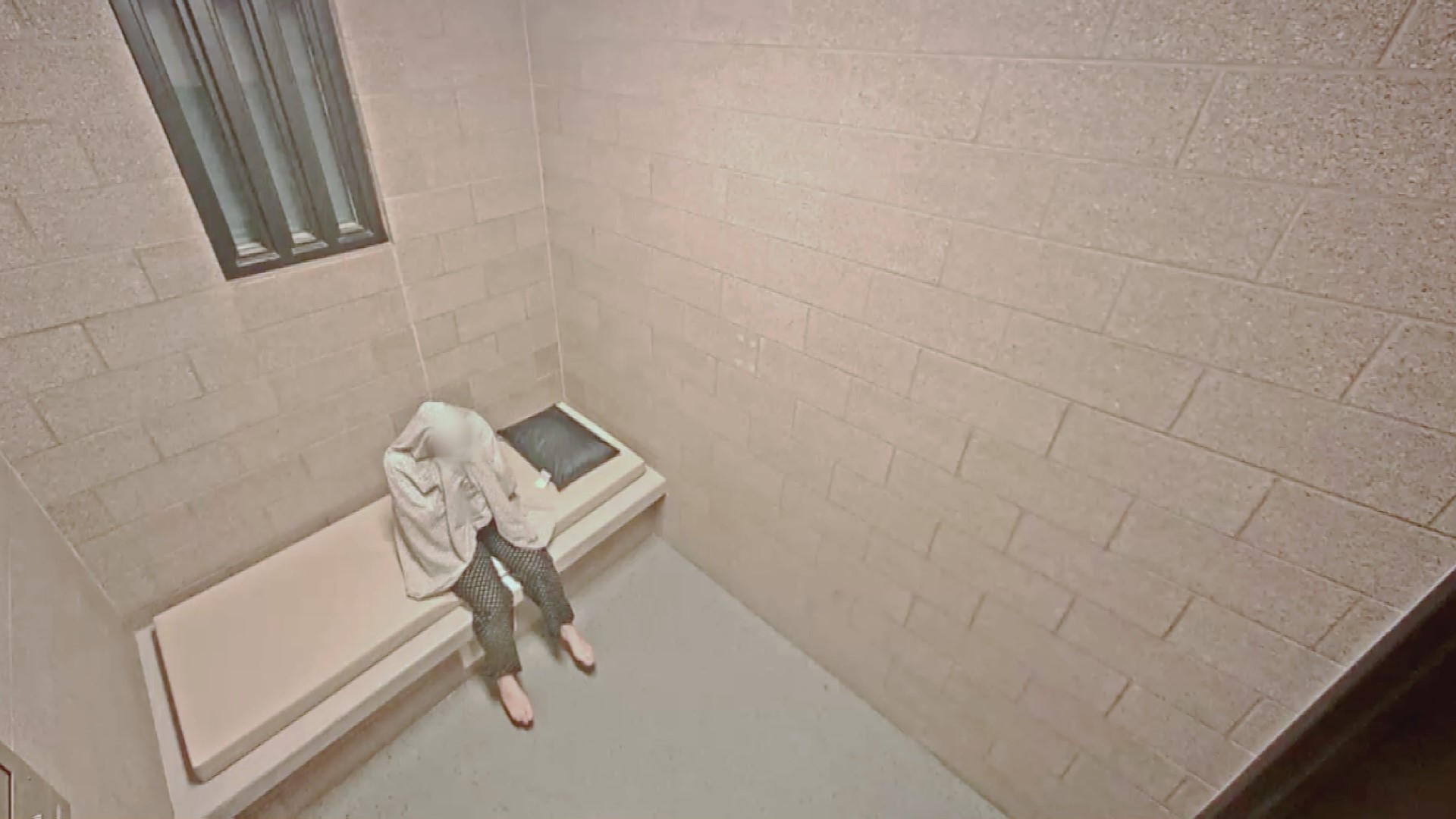
January 7, 2020, began like any other evening at their Dayton, Minn., home. Faris Hussien sat in his living room playing video games on his laptop; his wife, Sara, 9-months-pregnant with their first child, cooked in the kitchen.
Due in only two weeks, they dreamt of how they would welcome their son into the world. Her husband would be by her side to comfort her, with their family close by, ready to bring him back to a home filled with everything their new baby could possibly need.
“We were so excited to be a family,” Faris said.
Then they heard what sounded like a boom at their front door.
The night would end with 26-year-old Sara alone in the Hennepin County jail, booked for a crime she did not commit, weeping in searing pain and in labor.
Her 26-year-old husband sat behind bars in another part of the jail, arrested after he says he defended his wife and unborn child against what he thought were home invaders.
Instead, they turned out to be police, raiding his home because they wrongly suspected he was working with a small-time shoplifter.
After Sara said she spent the next day and a half begging jail guards for help, her water broke. Then, records and interviews show, she was taken to a hospital shackled to the ambulance gurney and then to a hospital bed.

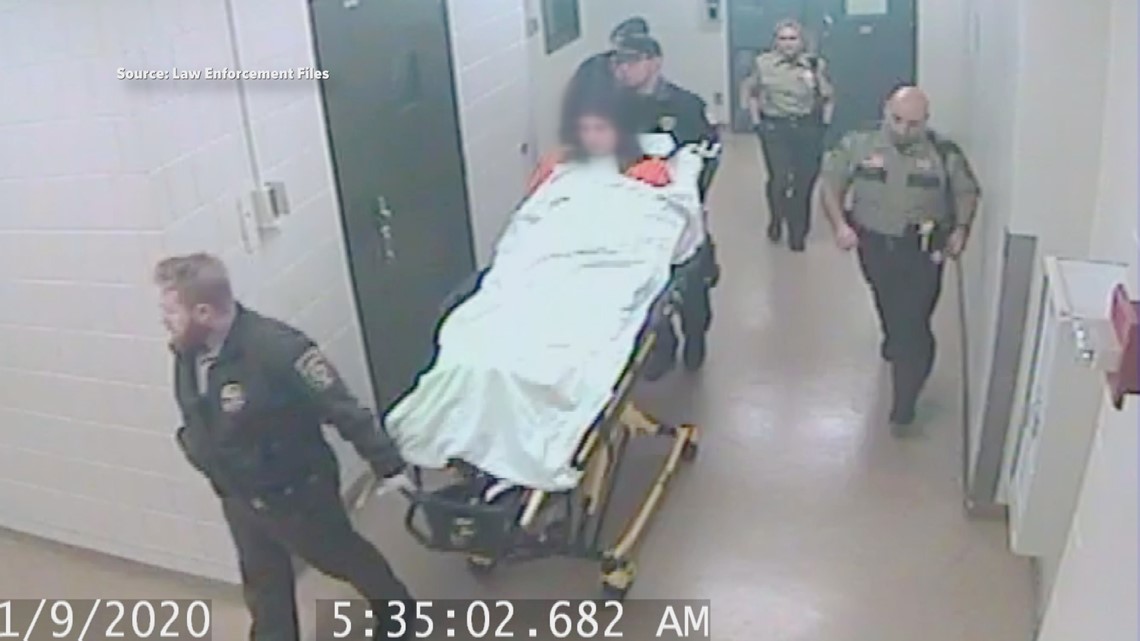
The American Medical Association calls restraining pregnant women during the birthing process “barbaric.” An expert who reviewed the case says it was a clear violation of state law.
In 2014, the Minnesota legislature made it illegal for jails and prisons to restrain pregnant women unless they were safety and security risks.
“Based on the facts of the case I have, nothing suggests that it was legal to restrain this woman in the way that she was,” said Rebecca Shlafer, a University of Minnesota Department of Pediatrics assistant professor who was part of a team that advocated for the ban.
“This is a very clear case in which the law has been violated,” Shlafer said after reviewing the case for KARE 11.
At the hospital, humiliated, exhausted, Sara said she spent five hours in labor before finally being freed from the shackles.
She said she begged for her husband to be there, still not knowing why police raided their home in the first place, or even why he was in the jail.
When Faris called his brother from jail and found out his wife was in labor, he could only sob in his cell, knowing he could do nothing to be with her.
Even after she gave birth, another two days passed before Faris could post bail and finally be with his family.
“They took away my happiness that day,” Sara said.
“I will never forgive them,” Faris added.
And it all happened over a snow blower.
Chapter 1 More than a 'knock and talk'
Before Jan. 7, 2020, Faris worked as a fiber engineer while studying to get his masters as Sara studied at North Hennepin Community College. Other than a few speeding and parking tickets, neither had any criminal record.
The same cannot be said of Kevin Leclaire, whose criminal record is filled with a host of theft charges and convictions, many of them for shoplifting throughout Minnesota.
In late 2019, Menards suspected Leclaire of stealing merchandise from stores, then returning them later to a service desk to exchange for gift cards, according to company and police records. Leclaire now faces several charges for the alleged thefts, with many of those cases still pending.
Faris said he bought those gift cards on an online marketplace where Leclaire had positive reviews and sold the cards at a discount. Faris says he had no idea about the seller’s criminal history or how Leclaire was suspected of getting the cards.
“There was nothing suspicious about him,” Faris said. “He drives a $60,000 truck and looks professional.”
Leclaire could not be reached for comment.
Needing a snowblower, Faris used the gift cards to buy one from the Maple Grove Menards – an $859.12 Briggs & Stratton model. Menards traced the purchase back to Faris.
Maple Grove Detective James Kirkey, who had been investigating the case, got a warrant to search Faris’s home for the snowblower. But as Kirkey would later tell an investigator, the search was going to be “more than just a knock and talk.”
About two years earlier, a contractor had called Dayton police saying he was at Faris’s home when he saw numerous guns and ammunition in a bedroom. The contractor said when he learned that “two Arab brothers” owned the home “he became very suspicious due to recent events,” according to the police report.
Faris said state and local authorities raided the home in 2017 and seized his firearms, but they were all returned, records show. He was never charged. He said he legally owned all of them and kept them for hunting and self-defense, police records show.
A confidential police planning memo for the snowblower raid shows officers knew about the earlier gun raid, but it also said: “There were no reports of violent acts occurring at the residence, and neither party has a violent criminal history.”

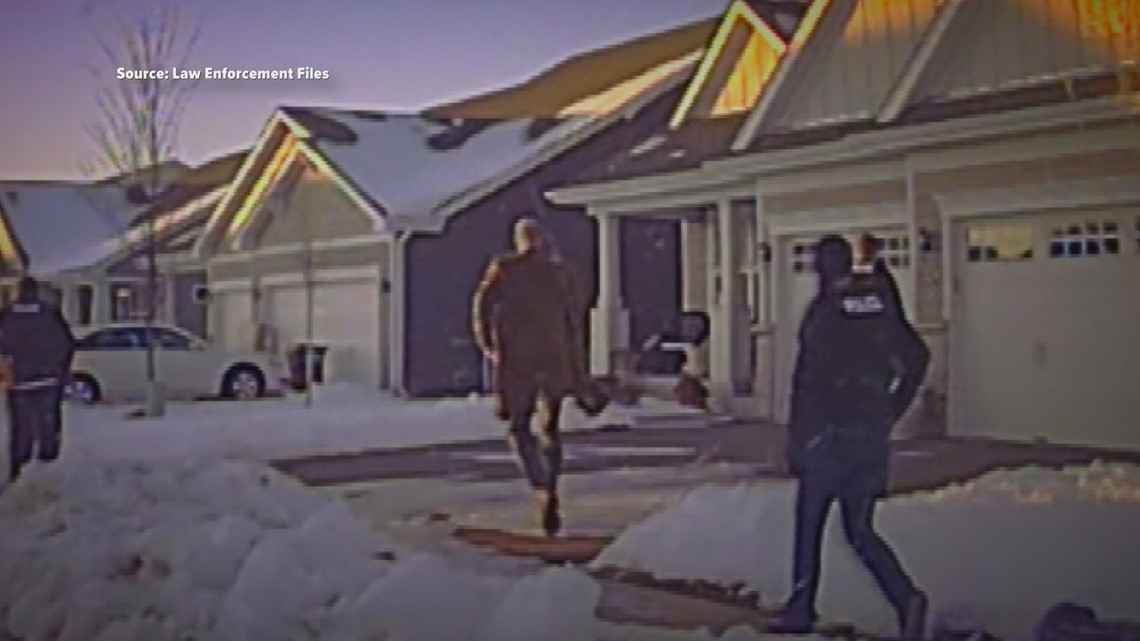
Still, knowing there were guns in the house, Kirkey brought five other officers with him for the snowblower raid. With their cars parked up the street out of view, two cops went into the backyard, another stood in the road with a rifle, and three stood in the home’s front entryway, with Kirkey wearing plain clothes and a long brown trench coat.
They pounded on the door.
“Police! Search warrant, open the door please,” one of the officers announced, according to a police recording of the raid.
In the next nine seconds, officers called twice more to open the door before stating, “Open the door before I boot it.”
Just 27 seconds after the first knock on the door, they made good on their threat and started kicking it in.
Chapter 2 'I'm going to die today'
Playing video games with his headphones on, Faris says he didn’t hear the officers announce they were police.
At first, he thought the pounding on the door might be his brother pranking him.
But as the pounding continued, he quickly realized this was something else. He grabbed the gun he kept next to him in a drawer, went to the window and peaked through the blinds.
He says he only saw a large man in a trench coat – and no police cars.
He thought someone was trying to break in, or maybe targeting his family for a hate crime. The last thing he suspected were the police.
“Open the door before I boot it,” he heard. Whoever was there, he told them he wasn’t going to let them in.
He yelled for Sara to call 911.
As he watched his door being kicked in, he said he fired a warning shot pointed down through the window, then another warning shot at the ground as his door burst open.
“I wanted to show them I’m serious, I’m willing to defend myself,” he said in an interview with KARE 11.
The officers retreated.

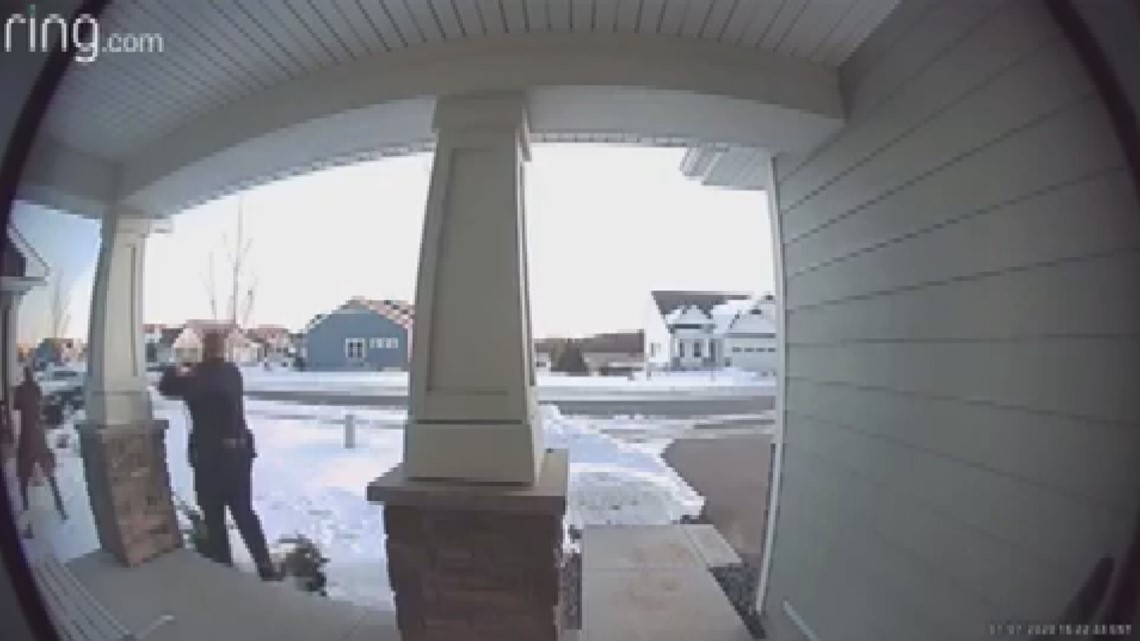
Faris said he went to open the door to see who was trying to break into his home. One of the officers later said that when he saw an arm with a gun poking out of the door, he fired a bullet -- which would land in a neighbor’s home.
Faris said he could feel the bullet fly by his face.
“I thought this was where I’m going to die today,” he said.
Faris fired a third shot, also at the ground he says, then retreated into his home. With his terrified wife on with 911, Faris yelled for the police to hurry up.
“We have police there,” the operator told him.
Faris didn’t understand what the operator meant. How could that be possible?
“Faris, come out of the house with your hands up!” an officer yelled at him. “This is a stupid search warrant for a snowblower!”
“Can you confirm those are real officers please?” Faris yelled to the 911 operator.
“They are real officers,” he responded. “Get out of the house with your hands up!”
He did, dropping his gun and walking out of the house, never resisting arrest, video and police records show.
Sara followed, with Faris trying to tell police she was pregnant. In a lawsuit, Sara accuses a Maple Grove officer of slamming her to the ground onto her stomach and sending her into labor.
“I was in so much pain,” she said in an interview with KARE 11.
Police briefly placed her in the back of a squad with her husband before moving him somewhere else, Faris said. That would be the last time they would see each other for several more days.

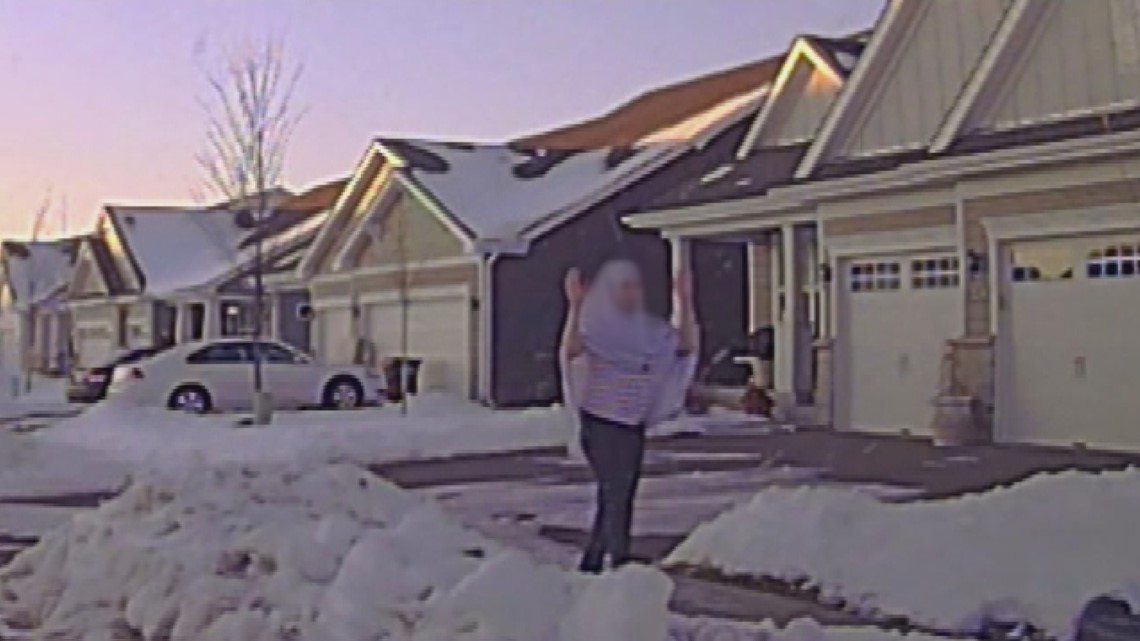
Chapter 3 In labor, and in shackles
Police took Sara to the Hennepin County jail that night, where records show investigators held her on a 36-hour-probable cause hold.
The charge?
First degree assault – even though there’s no evidence she did anything other than call 911 for help. On a booking form, an officer even checked ‘Yes’ when asked “Did the arrestee cooperate during the arrest process?”
Sara said that when she asked why police raided her home that night, they told her it was for a stolen snowblower.
“I did not know what they were talking about,” she said.

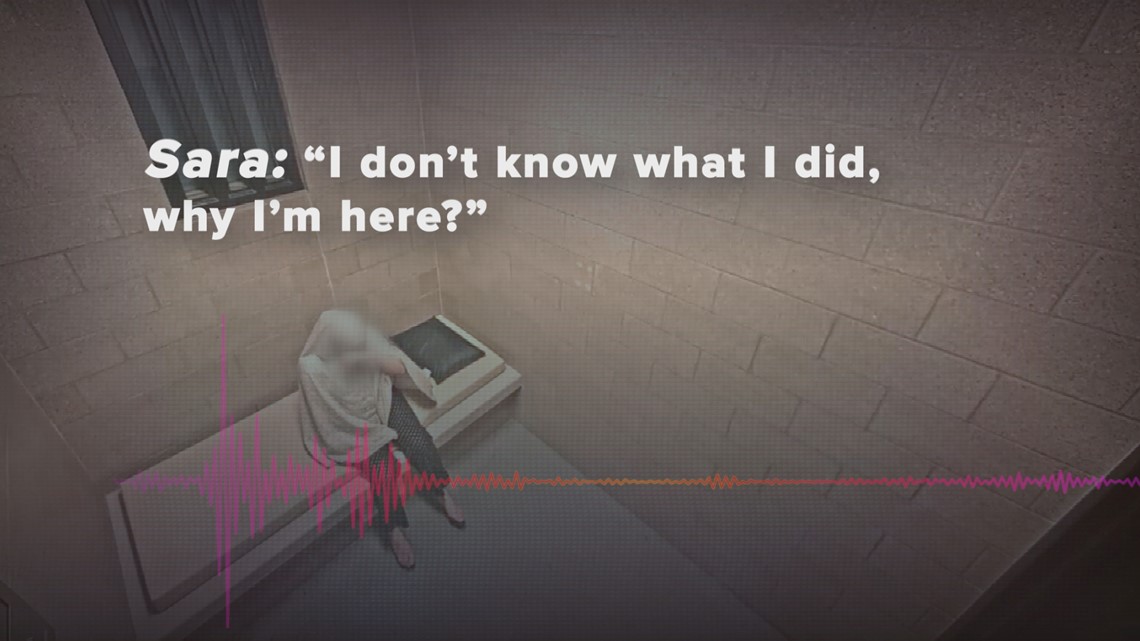
Shaking from labor pain by the next morning, she said she asked to see a doctor. Instead, she said a nurse came and told her that it was just stress, giving her nothing for the pain.
Sara said her back pain became so severe that she dragged a mattress to lay on top of the one she was using, before being told she had to put it back.
She slept only an hour that night, waking up at 5 a.m., when her water broke. She went to her cell door to tell them what happened, then said she was ordered to show proof. She had to show them her soiled pad.
“It was humiliating,” she said.
Finally, an ambulance arrived to take Sara to the nearby Hennepin County Medical Center, only blocks away.
In pain, already in labor, she was shackled as two jail guards accompanied her to the hospital, records show.
In 2010 the American Medical Association condemned shackling pregnant prisoners, and called restraining them during the birthing process “barbaric” and a risk to the mother and baby.
In 2014, the Minnesota legislature voted unanimously to ban the use of any type of restraint against women like Sara who are in labor, allowing it only in an “extraordinary medical or security circumstance.”
In all, 192 members of the House and Senate voted to approve the shackling ban; none voted against it.
Professor Shlafer, who testified in support of the ban, said she could see no such circumstance.
“There is no rationale that I can see at that point that would make it legal for them to shackle her,” she said. “They’re just lucky the baby didn’t die, or she didn’t have some sort of hemorrhage.”


Jail records indicate there was no violence involving Sara before she was transferred to the hospital. The records note she “was cooperative with staff throughout the entire process.”
Later, after Sara complained to Hennepin Healthcare about being shackled, a patient representative put the blame on Sara’s jailers, according to a record provided to KARE 11.
“You were in custody with law enforcement and arrived in shackles. This was not a decision made by our staff. Leadership explained that the shackles were removed by law enforcement and you delivered your child without shackles or restraints in place,” the patient representative from the hospital wrote.

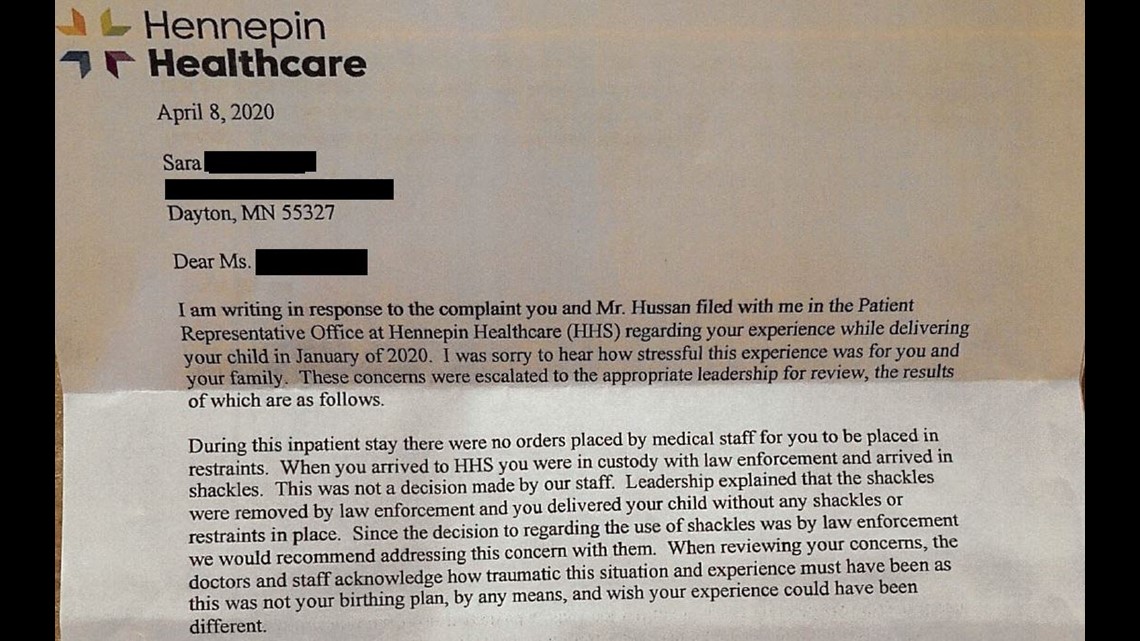
A Hennepin Healthcare spokeswoman told KARE 11 that the hospital’s policy for removing restraints on in-custody patients, “remains with law enforcement. Our policy allows us to request that they relax them for medical reasons.”
At one point, Sara said she asked to go to the bathroom. She says the deputies released her from the bed but shackled both of her legs together before allowing her to go.
When she got back, she said they again restrained her leg to the bed.
“I was treated like a dog,” she said.
It was only after her 36-hour legal hold expired that she said deputies removed the shackles and left. She was never officially charged with a crime.
After another eight and a half hours in labor, she gave birth to a son.
She said she was so exhausted and traumatized, she fell into a deep depression and had to stay in the hospital another five days before she could be discharged.
The new family’s misery would only continue.
Chapter 4 'An innocent client'
The loving home they had hoped to bring their baby into had been ransacked by police, forcing them to live in a motel.
Then Sara had to fight to stay in the country.
She had been legally living here on a temporary visa and applied for a green card as she worked to become a U.S. citizen.
But the month after she gave birth, U.S. Customs and Immigration denied her green card application, falsely claiming that she was charged with assault. The family had to hire an attorney to argue that an arrest did not mean Sara was formally charged.
Her immigration attorney, Kim Hunter, said Sara would have been deported had she not won the appeal.
“What happened was entirely inexcusable,” Hunter said.
Prosecutors charged Faris, a U.S. citizen, with three counts of first-degree assault for shooting at police, each carrying a minimum sentence of 10 years in prison. He says he lost his job and was unable to find steady work, while spending the next year and a half and thousands of dollars in legal bills fighting the charges and trying to keep Sara in the country.
Finally, in May, the Hennepin County attorney’s office dropped all charges against Faris, saying in a court filing that the “state cannot prove the case beyond a reasonable doubt.”
Hussien’s criminal defense attorney, Daniel Guerrero, said prosecutors couldn’t prove Faris knew police were raiding his home.
“I had an innocent client,” he said.
Still, even when Googling Faris’s name, one of the first hits that comes up are the charges filed against him last year.
They’ve gone public with their story, hoping to restore his name and hold law enforcement accountable for what happened to them.
Sara also filed a lawsuit against Hennepin County saying she was denied medical care at the jail and her constitutional rights violated when she was shackled while pregnant. The suit also names the Maple Grove officer Sara said pushed her to the ground the night of her arrest, accusing her of using excessive force.
“Arresting my client, holding her while she’s pregnant when she did absolutely nothing wrong here and treating her the way that they did is completely unjustifiable,” said attorney, Nick Sweeney.
A Hennepin County spokesman said in a statement: "The Hennepin County Sheriff’s Office takes these allegations seriously and is investigating them so that an appropriate response can be made. The Sheriff’s Office is aware of the laws governing the use of restraints on pregnant women. The health, safety, and security of all Adult Detention Center inmates are of paramount importance. Because this matter is in active litigation the Sheriff’s Office cannot comment further at this time.”
Citing the lawsuit, Maple Grove police chief Eric Werner declined to be interviewed for this story.
No matter the results of the lawsuit, neither Faris nor Sara will ever forget what happened to them on Jan. 7.
“There is no amount of money that will ever fix this,” Faris said. “They destroyed our dreams.”
MORE KARE 11 INVESTIGATES: Lawmakers demand answers after massive failures led to a murder
MORE KARE 11 INVESTIGATES: Lawmakers call gap cases a ‘real mess’


